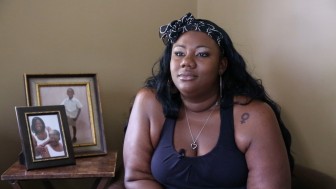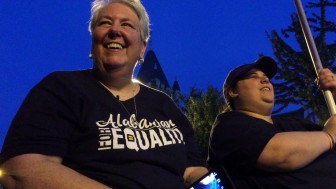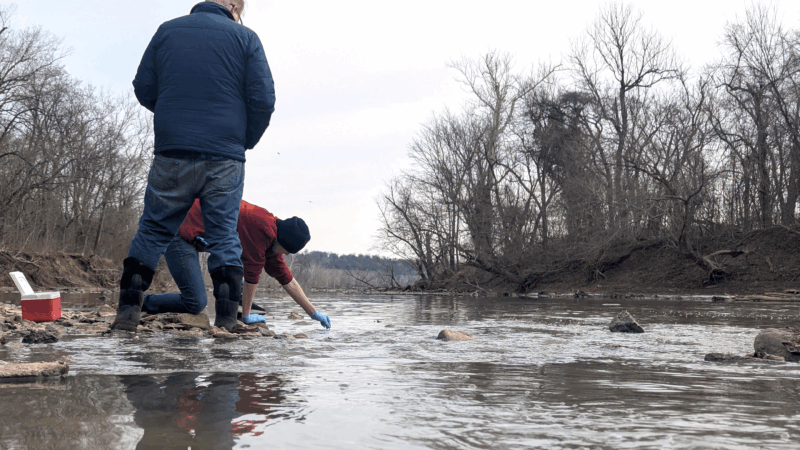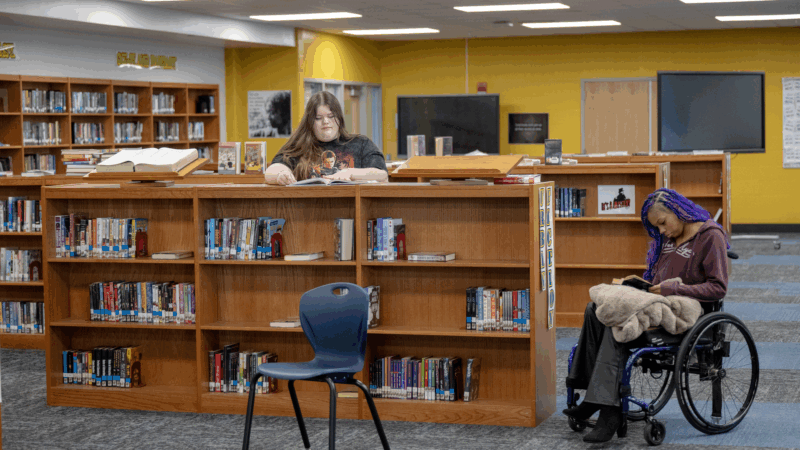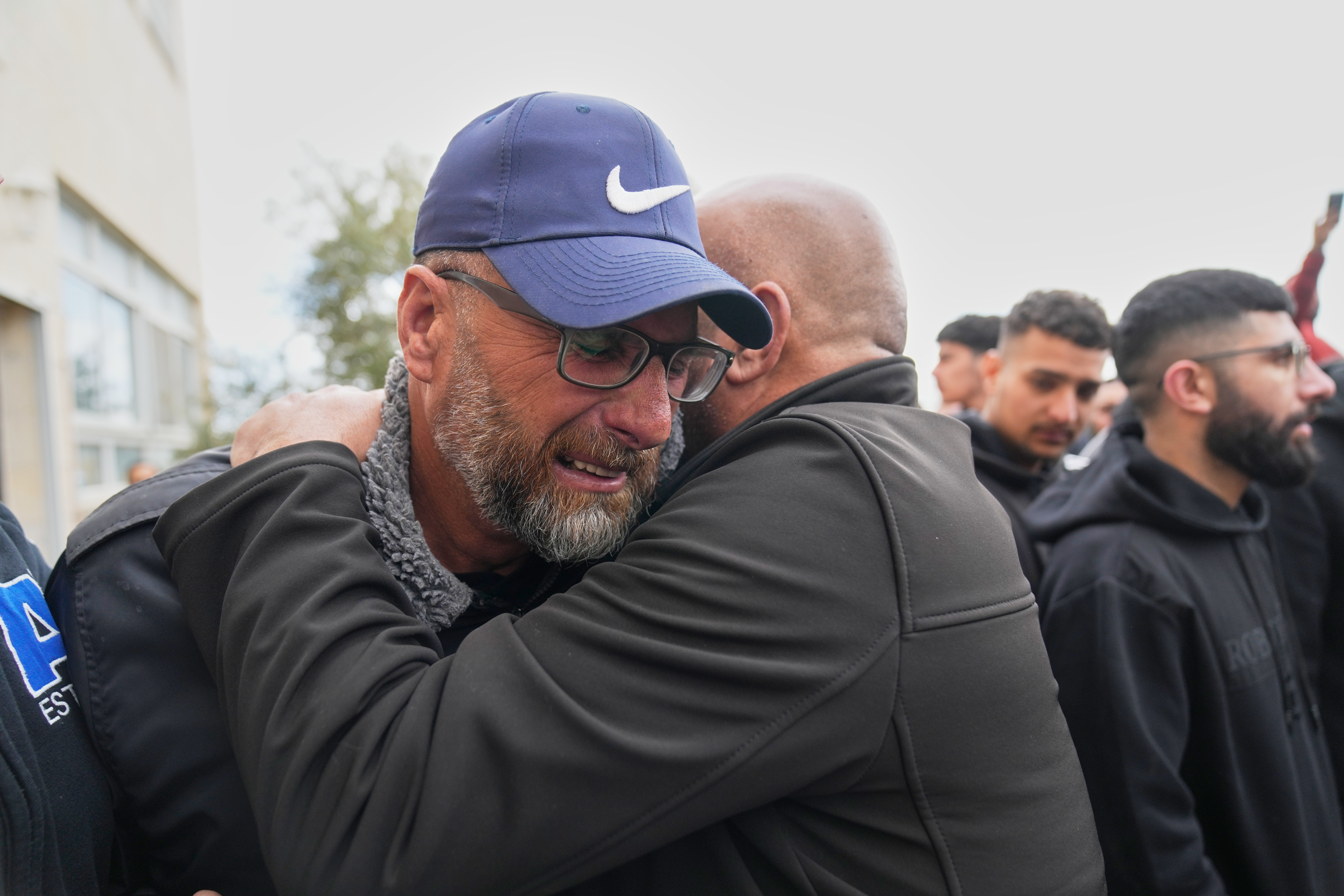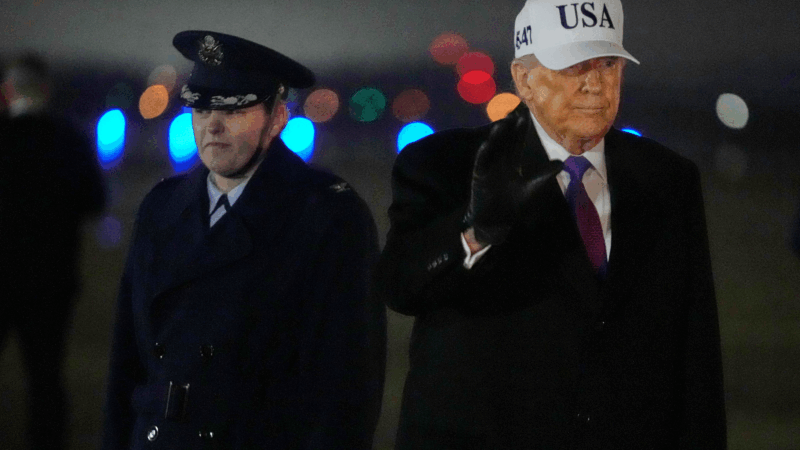New Documentary Highlights Lesbian Struggle for Equality in Alabama
A new documentary —Alabama Bound– follows the lives of three lesbian couples and their struggles for equality. There’s a custody battle, another couple’s quest to adopt the child they raised, and one woman’s fight for LGBT rights in Alabama. The film was inspired by a 2012 art exhibition about lesbian couples in the Deep South created by artist Carolyn Sherer who co-directed the documentary. The film premieres Sunday, October 22, at NewFest: New York City’s LGBT Film Festival. It was produced by Michele Forman, director of the media studies program at the University of Alabama at Birmingham. WBHM’s Esther Ciammachilli spoke to Carolyn Sherer and co-director Lara Embry.
On why they chose to follow only lesbian couples
“The reason we are focusing on lesbians is that in the Birmingham area they’ve been previously invisible,” Sherer says. “And partly that may be because of the AIDS crisis and the attention that was placed on what was going on in in the 80s in Birmingham.”
“I think part of why I was attracted to the idea of focusing on lesbian families in the South was we decided to kind of explore the family values of our subjects, and wanted to do so in a way that would be accessible and emotionally engaging for people who might not previously have been allies to the community,” says Embry. “And frankly I think in the South particularly, lesbians are less threatening than gay men to a lot of people in the culture.”
On the difficulties of making this film
“I think the hardest part of making the film was the fact that the story kept changing,” Sherer says. “You know we thought we had a wrap and because of the political situation particularly in Alabama with Judge [Roy] Moore things continue to evolve.”
Roy Moore plays a prominent role in the film due to his role in the fight against marriage equality and LGBT rights in Alabama. Since filming began, Moore has been removed from his position as chief justice. Now he’s the GOP candidate for Senate. What does it say about voters in this state?
“I think that it says that there are many voters in this state who are party loyal and can’t stomach the idea of voting for a Democrat,” says Embry. “We have polarized ourselves to where people will vote for a candidate who’s not qualified because that’s the candidate nominated by their party.”
“I think also it points to the issue that we have in this state where there’s often a blurred line between church and state,” Sherer adds. “That is not the case across the country.”
On whether the idea of separation of church and state will ever take hold in Alabama
“I think that churches are changing in Alabama,” says Sherer. “Ten years ago, there were no churches or few churches that really accepted gay people. Now we see many churches that are advocating for the gay community. So I do think it’s going to change.
On what they would want Roy Moore to take away from this film if he were to watch it
“I would love from Roy Moore is just a moment of empathy,” says Embry. “And I think that’s what we were trying to evoke with this film was empathy with the injustices that our characters face. I think if he were to feel that he might at some in some way question the dogma that he ascribes to.”
On Emby and Sherer’s thoughts on June 26, 2015, the day the U.S. Supreme Court legalized same-sex marriage
“I felt relieved that that excursion to the Supreme Court turned out as we thought,” Embry says. “I felt happy for the people who we have been following who we knew would be impacted by that decision. And hopeful. I can’t say I feel that way anymore. I think in some material ways the landscape has changed. We have moved backwards. And on that day at least it really felt like everything was moving forwards.”
What I learned watching every sport at the Winter Olympics
Sit down with pop culture critic Linda Holmes as she watches the 2026 Winter Games. She is exhausted by cross-country, says "ow ow ow" during moguls, and makes the case, once and for all, for curling.
Scientists worry about lasting damage from Potomac sewage spill
Drinking water around the District of Columbia hasn't been contaminated. But scientists say the environmental damage could be severe.
Using saliva to detect disease holds promise, but it’s not perfected yet
Easier than a blood test, saliva tests have the potential to detect cavities, infections and even cancer. But a lack of insurance coverage and other obstacles stand in the way of wider use.
What worked and what didn’t with a cellphone ban at a Kentucky school
Keeping students off their devices is the new norm in many schools. We talked to students and educators at one Kentucky school to see how it's working.
Israeli settlers kill 19-year-old Palestinian American, officials and witnesses say
Israeli settlers in the occupied West Bank shot and killed a Palestinian American man during an attack on a village, the Palestinian Health Ministry said.
Trump says he doesn’t know if aliens are real but directs government to release files on UFOs
President Donald Trump said Thursday that he's directing the Pentagon and other government agencies to release files related to extraterrestrials and UFOs because of "tremendous interest."

